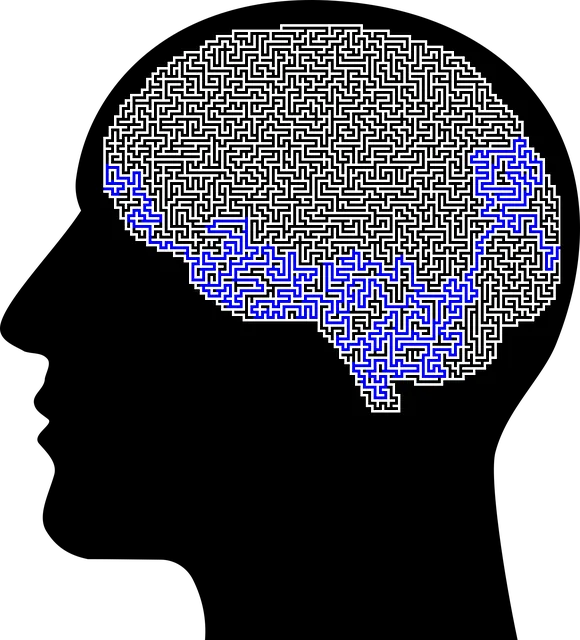The Kaiser Permanente mental health facility in Parker leads the way in culturally sensitive healthcare through innovative training programs. These initiatives empower staff to understand diverse patient backgrounds, reduce stigma, and address barriers like language and historical trauma. By combining theoretical learning with practical exercises, the center enhances patient outcomes, satisfaction, and community relationships, setting a benchmark for cultural competency within Kaiser Permanente's mental health services.
Healthcare provider cultural competency training is an essential aspect of delivering quality patient care. In today’s diverse society, understanding and respecting different cultures are crucial for effective communication and improved outcomes. This article explores these topics through three key sections: “Understanding Cultural Competency in Healthcare,” a case study on Kaiser Permanente’s Mental Health Facility, and “Training Strategies for Healthcare Providers” as exemplified by Parker’s Mental Health Center.
- Understanding Cultural Competency in Healthcare: A Necessary Approach
- Kaiser Permanente's Mental Health Facility: A Case Study on Cultural Sensitivity
- Training Strategies for Healthcare Providers: Enhancing Patient Care at Parker's Mental Health Center
Understanding Cultural Competency in Healthcare: A Necessary Approach

In today’s diverse healthcare landscape, cultural competency is more than just a desirable trait; it’s an essential tool for providing equitable and effective care. This concept, at its core, involves understanding, appreciating, and respecting the cultural differences that shape individuals’ health beliefs, behaviors, and experiences. At Kaiser Permanente mental health facilities, like the one in Parker, this approach is not just talked about but actively integrated into patient care.
Cultural competency training equips healthcare providers with the skills to navigate complex interactions between diverse patients and the healthcare system. This includes recognizing and addressing barriers such as language differences, cultural norms influencing help-seeking behaviors, and the profound impact of historical traumas on mental health. By fostering a deeper understanding of these nuances, Kaiser Permanente’s programs, like Risk Management Planning for Mental Health Professionals, aim to reduce the stigma associated with mental illness (Mental Health Awareness) through education and empathetic care, ultimately enhancing patient outcomes and satisfaction.
Kaiser Permanente's Mental Health Facility: A Case Study on Cultural Sensitivity

The Kaiser Permanente mental health facility in Parker stands as a shining example of cultural sensitivity and competency within healthcare. This institution recognizes that effective treatment requires an understanding of patients’ diverse backgrounds, beliefs, and experiences. By implementing comprehensive training programs, Kaiser Permanente equips its mental health professionals with the skills to navigate complex cultural landscapes, fostering an environment where every patient feels seen and heard.
The facility’s approach goes beyond typical Risk Management Planning for Mental Health Professionals, delving into Compassion Cultivation Practices that encourage empathy and self-awareness among staff. Moreover, promoting Self-Care Routine Development for Better Mental Health is integral to their strategy, ensuring professionals maintain resilience and prevent burnout while providing care. This holistic emphasis on cultural competency and well-being ultimately contributes to improved patient outcomes and stronger community relationships.
Training Strategies for Healthcare Providers: Enhancing Patient Care at Parker's Mental Health Center

At Parker’s Mental Health Center, a Kaiser Permanente facility, training strategies for healthcare providers have been revolutionized with a focus on enhancing patient care. The center recognizes that cultural competency is paramount in delivering effective mental health services to a diverse range of patients. To this end, they offer immersive workshops and simulations designed to equip staff with the skills needed to navigate complex cultural dynamics. These sessions delve into crucial topics such as unconscious bias, microaggressions, and the impact of systemic barriers on mental health outcomes.
Through interactive exercises and crisis intervention guidance, healthcare providers gain practical experience in managing diverse patient populations. The center also emphasizes Mental Health Awareness, incorporating discussions on the stigma reduction efforts that foster an inclusive environment. By combining theoretical knowledge with hands-on practice, Parker’s Mental Health Center ensures its staff is well-prepared to provide culturally sensitive care, ultimately improving patient satisfaction and outcomes.
Cultural competency training is a vital component of modern healthcare, as evidenced by successful initiatives like Kaiser Permanente’s mental health program and Parker’s Mental Health Center. By adopting comprehensive training strategies, healthcare providers can significantly enhance patient care, fostering an inclusive environment that respects diverse cultural backgrounds. This approach not only improves patient outcomes but also strengthens the bond between caregivers and communities they serve.






